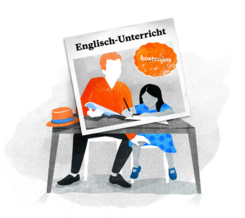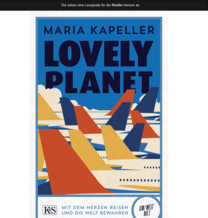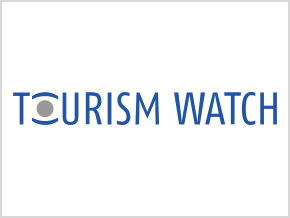A research By Gerard de Gracia on how voluntourism impacts on native communities.
From tourism to voluntourism in Uganda
Uganda got the highest tourism growth rate in Africa in 2011. It attracts over one million visitors each year, which makes it crucial to its economy. Tourism has evolved to include not only visits of Uganda’s landscapes but also volunteering, merging into voluntourism.
Understanding voluntourism in Uganda requires considering its past: British colonization (1894–1962), Idi Amin’s dictatorship (1971–1979), the Lord’s Resistance Army insurgency (1987), and several wars created a perfect scenario for international aid. The World Bank reports Uganda received about US$190 billion in foreign aid from 1960 to 2021.
Annual estimates indicate around 5,000 to 10,000 international volunteers in Uganda. Most participate for 2 weeks to 6 months, with 2-4 weeks being the most popular. The average cost per week ranges between 250€ to 500€, leading to an estimated annual revenue of at least 2.5€ million. Most voluntourists come from North America, Europe, and Australia, predominantly aged 18-30, with increasing numbers of older volunteers and retirees.
The main forms of voluntourism in Uganda include health care, education, community development, and environmental conservation.
Despite its popularity, criticism of voluntourism due to ethical, colonial, and sustainable issues has grown in the last decade. Critique comes from the lack of sustainable impact, ethical concerns, economic impact, psychological and social effects, ineffective program management, the impact on children and environmental concerns.
One of the main organizations advocating for a need to reframe voluntourism practices in Uganda and beyond is No White Saviors, a community-based organization in Kampala that works with Black Liberation, Pan Africanism and dismantling White Supremacy. It became well-known globally with the Rene Bach case, an American missionary that was offering medical treatment, with neither qualifications nor experience in the field, which led to the passing of 105 Ugandan children over several years.
How is voluntourism connected to colonial practices?
The recent development of the industry of voluntourism, although not directly state-led but rather encouraged by Western businesses and society, has certainly developed from these colonial and imperial soft-power roots (Remers, 2022).
From February to May 2024, my research conducted together with No White Saviors in the regions of Kampala (Central), Fort Portal (West), Jinja (East) and Gulu (North), was done to identify the impact of voluntourism on native communities.
After the collection of the data through ethnographical and qualitative methodologies (participatory observations, interviews and focus groups), a connection between colonial practices and voluntourism became obvious.
Due to colonialism, native communities have internalized oppression, so often do they hear that they are good for nothing, know nothing and are incapable of learning anything, they become convinced of their own unfitness (Freire, 2014). This observation was made already various times by No White Saviours for the situation in Uganda and can be seen in the natives’ answers from the research:
“Because actually, I don’t know how things would be if they were not here. Because you can find that some people just survived, because those guys came.”
“When these volunteers come, they arise the sleeping genes in the community.”
Voluntourism reinforces dynamics of privilege and power – including internalized oppression, inferiority complex of native communities or the idealization of voluntourists as well as the narrative of western culture as development and “good”.
Particularly the perpetuation of dependency North-South is a major concern as a consequence of unsustainable practices within voluntourism. Several projects and activities are stopped and restarted repeatedly, totally dependent of economic or material donations from voluntourists.
The voluntourists’ “giving” culture is feeding the never-ending circle of dependency. One of the natives from the communities mentioned it as followed:
“But one thing I’ve always told voluntourists is to detach away from the idea of giving all the time. All I want them to do is to come up with a self-sustainable idea…”
A consequence of this culture, stated by another native person from the community in Jinja, is:
“This is the borehole that we were given but at times it dries up and it causes the scarcity of water in the community, leading them to start looking for those wells they share with animals, making people fall sick.”
Volunteers are motivated toward voluntourism as a method of self-healing, with the idea that saving impoverished communities will somehow provide some form of validation to their own personal lives. In this regard, volunteers are using the poor conditions of vulnerable communities to discover meaning and satisfaction in their own lives instead of serving first the community’s identified needs and empowerment interests (Snyder et al. 2011).
During the interviews with natives in the communities, it could be seen how voluntourists use their experience in Africa as a ‘salvation’ from their own challenges or problems.
In most cases, there are no requirements or criteria for people to enrol in voluntourism. There are no follow ups in the programs, thus the same actions are repeated over and over, applying short-term solutions looking at the symptoms of the challenges, instead of long-term ones, focusing on the root causes of them.
Voluntourism reinforces colonial patterns and prevents native communities from being empowered, to conduct sustainable practices and to foster development and independency. Therefore, colonization chains of voluntourism must be destroyed.
How can voluntourism be decolonized?
Voluntourism has evolved to a practice where the focus is on “what” we do and has forgotten the most essential part: “why” do we do it and “how” do we do it.
We cannot ignore the impact of voluntourists in direct connection with native communities. Voluntourism needs to be reframed, it needs to be transformed, and to make this happen, the voluntourists must change as well. Based on my analysis I am sure that this change is possible.
Dos and Don’ts
Decolonise yourself first: Work on your privilege and what it means in the relationship with others. A suggestion could be to read and do the reflection work on Layla F. Saad book: “Me and White Supremacy” to understand white privilege and the participation in white supremacy and to stop inflicting damage on Black, Indigenous and People of Color and, in turn, help other white people do better too.
Long-term collaborations: A few months or weeks are not enough. Get trained before going and plan the next steps after your leave ensuring that the connections you made persist.
Don’t do what you are not qualified for: Don’t use vulnerable communities as a playground where you can practise things you could not do in your own country. Good intentions are not enough!
Ensure sustainability: Join projects or organizations that are self-sustainable, have native people involved and foster native ownership!
Foster empowerment: If you have expertise and specific knowledge, provide ownership and value to the native communities through transfer of knowledge.
Be aware of what you share on social media: Respect the image rights and the protection of it, especially for children and vulnerable people. Do not take pictures without consent. Think about the message you want to transmit; Uganda is not only about poverty, it has multiple stories.
Act locally: Contribute to the local economy and people. Avoid spending money that does not directly reach the native communities.
Indigenous names are important: Use the original Indigenous names. Every single place had a name before white people arrived in Uganda. For instance, Lake Nnalubaale (Lake Victoria), or the Kazinga National Park (Queen Elizabeth National Park).
Why is it important to decolonize voluntourism?
In her study on Voluntourism in Sub-Sahara Africa, Isabel Remers (2022) writes that “the overwhelmingly Western-centric design of voluntourism fails to prioritise African voices and thus continues an inequal power relationship propagating a destructive discourse both within Africa and the West.” Therefore, we need to fundamentally reconsider the ways in which the global North and the global South interact, relate, support, collaborate, and cooperate with one another. Instead of jumping straight to the "what"—the actions or initiatives—we should first delve deeply into the "why" and the "how." Why are these interactions important, and how can they be structured to foster genuine partnership and mutual benefit? Understanding these foundational questions will enable us to create more meaningful and effective relationships. It requires introspection and a willingness to let change start within ourselves.
About the author:
Gerard de Gracia is a Social Educator, graduated at Pere Tarres University in Barcelona. He is currently studying a 3-year program of entrepreneurship and leadership at Kaospilot, Denmark. From February to May 2024, he made an internship with No White Saviors and conducted together a research on how voluntourism impacts on native communities in Uganda.
Bibliography:
ECPAT (2021) Tourism boom in Uganda driving demand for orphanages and putting children at risk of sexual exploitation, ECPAT. Available at: https://ecpat.org/tourism-in-uganda-driving-demand-for-orphanages-putting-children-at-risk-sexual-exploitation/
Freire, P. (2014). Pedagogy of the Oppressed: 30th Anniversary Edition. https://www.amazon.com/Pedagogy-Oppressed-Anniversary-Paulo-Freire-ebook/dp/B00M0FQHQO
Guyson, N. (2024) Africa’s Uganda reports shrinking foreign aid, healthcare to be badly hit, Development aid. Available at: https://www.developmentaid.org/news-stream/post/174775/uganda-reports-shrinking-foreign-aid
Guttentag, D. (2009) (PDF) the possible negative impacts of volunteer tourism. https://www.researchgate.net/publication/227907035_The_Possible_Negative_Impacts_of_Volunteer_Tourism
IVPA Surveys and Reports: (2024) International Volunteer Programs Association. https://volunteerinternational.org/
Musinguzi, B. (2020) Petitions to decolonise naming of Lakes, streets, The East African. Available at: https://www.theeastafrican.co.ke/tea/magazine/petitions-to-decolonise-naming-of-lakes-streets-1465850
Remers, I. (2022). Voluntourism in Sub-Saharan Africa is Expiation by the West, but Only Creates Further Dependency on the West. Glocality, 5(1). https://doi.org/10.5334/glo.50
Saad, L.F. (2022) Me and white supremacy. Naperville, IL: Sourcebooks Explore.
Snyder, J., Dharamsi, S., & Crooks, V. A. (2011). Fly-By medical care: Conceptualizing the global and local social responsibilities of medical tourists and physician voluntourists. Globalization and Health, 7(1), 6. https://doi.org/10.1186/1744-8603-7-6
UNV (2022) UNV Annual report 2022, Annual report 2022. https://www.unv.org/Annual-report/Annual-Report-2022
VSO (2023) Annual report 2022-23, VSO annual report 2022-23. https://www.vsointernational.org/about/annual-report
White, S. (2021) What is voluntourism and why it’s important, Sojournies. Available at: https://sojournies.com/what-is-voluntourism/


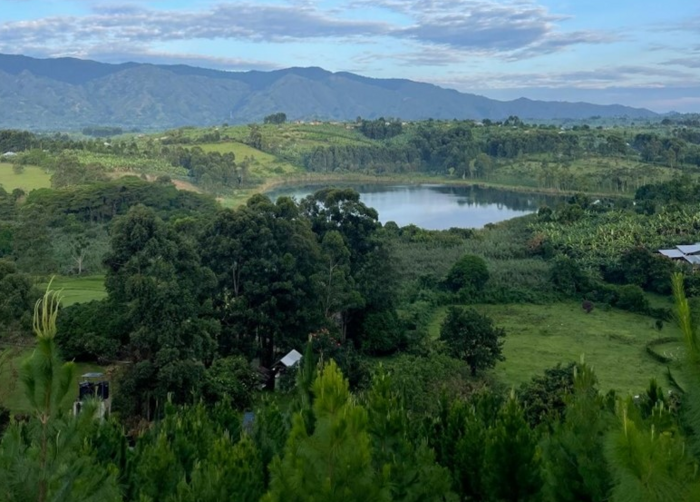
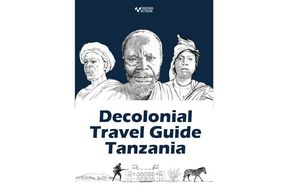
![[Translate to english:] Frau schaut durch ein Fernrohr in die Weite Woman looking through Telescope_Uganda](/fileadmin/tourismwatch/_processed_/b/1/csm_TW_103_Uganda_Slim_Emcee_-_Unsplash_0_06225e8801.jpg)
